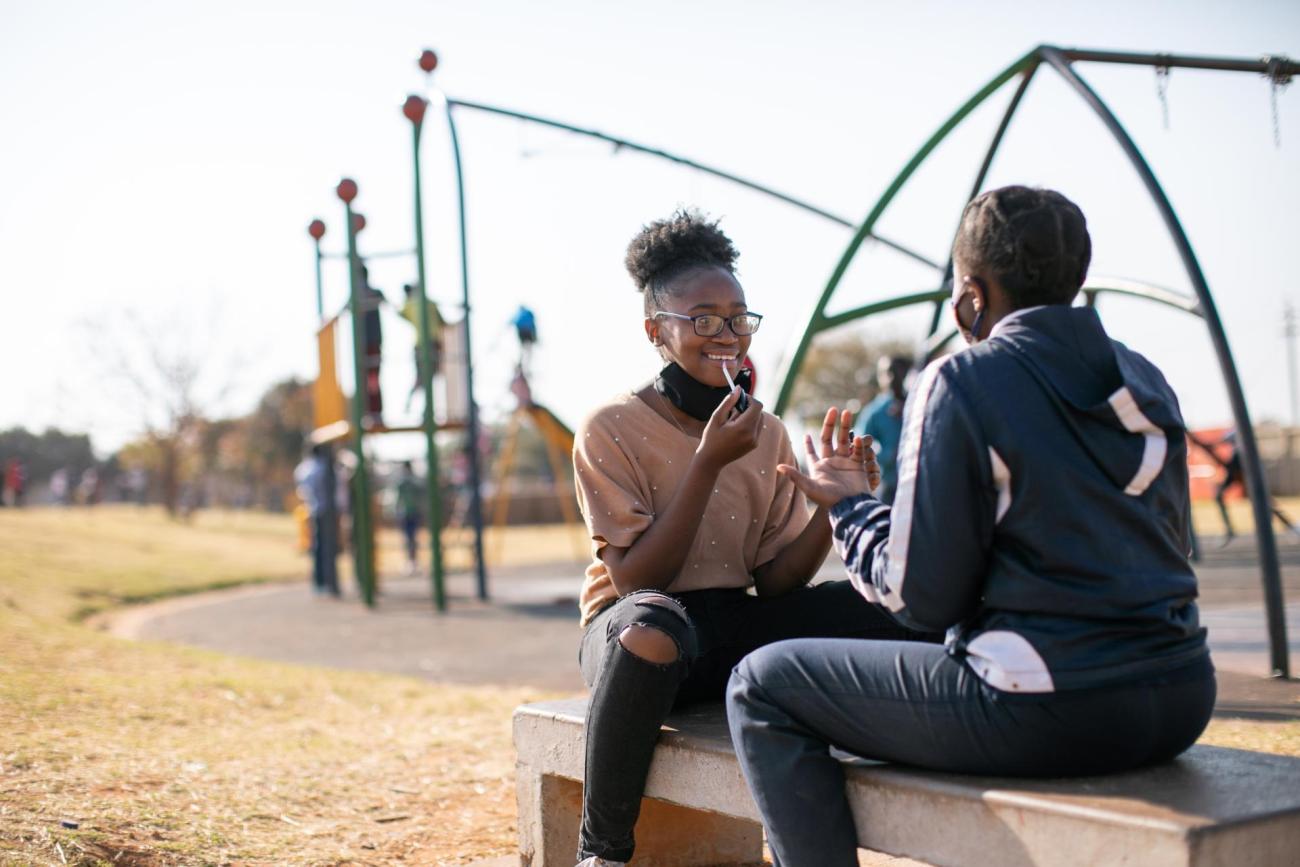#OnMyMind: Better mental health for every child in South Africa

Every child deserves to grow up in loving, nurturing and safe environments.
Unfortunately, this is not the case for many children and young people in South Africa.
Children and adolescents face numerous challenges – including individual, social, and environmental factors – that impact their mental wellbeing. Not feeling safe, exposure to high levels of community violence, child maltreatment and gender-based violence are some of the factors that have a significant impact on the wellbeing of children and adolescents.
The COVID-19 pandemic increased the mental health burden that young people face. A U-Report South Africa poll in 2022 found that some 73 per cent of children and young people felt they needed mental health support in 2022. The disruption to young people’s routines, education, recreation, as well as concern for family income and health, has left many young people feeling afraid, angry depressed and anxious about the future.
While the mental health crisis is critical, there are also reasons for hope.
The same U-Report poll found that 38 per cent of those who felt they needed mental health support actively sought help and a further 67 per cent of respondents stepped up to support a friend’s mental wellbeing.
A key pillar that guides UNICEF’s work in South Africa is a commitment to ending all forms of violence – from prevention and early intervention to improving the mental and physical wellbeing of young people. Parenting programmes and early childhood development form a core part of the response to give every child the best start in life.
This page aims to support YOU across four areas of action – seeking help, shifting the narrative, understanding, and having the conversation.
Unfortunately this is not the case for many children and young people in South Africa.
Children and adolescents face numerous challenges – including individual, social, and environmental factors – that impact their mental wellbeing. Not feeling safe, exposure to high levels of community violence, child maltreatment and gender-based violence are some of the factors that have a significant impact on the wellbeing of children and adolescents.
The COVID-19 pandemic increased the mental health burden that young people face. A U-Report South Africa poll in 2022 found that some 73 per cent of children and young people felt they needed mental health support in 2022. The disruption to young people’s routines, education, recreation, as well as concern for family income and health, has left many young people feeling afraid, angry depressed and anxious about the future.
While the mental health crisis is critical, there are also reasons for hope.
The same U-Report poll found that 38 per cent of those who felt they needed mental health support actively sought help and a further 67 per cent of respondents stepped up to support a friend’s mental wellbeing.
A key pillar that guides UNICEF’s work in South Africa is a commitment to ending all forms of violence – from prevention and early intervention to improving the mental and physical wellbeing of young people. Parenting programmes and early childhood development form a core part of the response to give every child the best start in life.
This page aims to support YOU across four areas of action – seeking help, shifting the narrative, understanding, and having the conversation.
SEEKING HELP
SHIFTING THE NARRATIVE
UNDERSTANDING
HAVING THE CONVERSATION
Seeking help
The first step and sometimes we need a little encouragement to take it.
Being aware of when you need support and knowing where to go for help is the first step. UNICEF – with support from META – ran a 2023 mental health campaign on Facebook that reached more than 17,5 million people in South Africa with coping tips and the counselling service contact numbers for our partner, Childline, as well as the South African Depression and Anxiety Group (SADAG).
WHERE TO GET HELP




